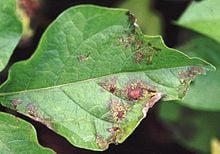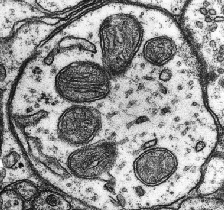According to the NIH, "Genomic medicine is an emerging medical discipline that involves using genomic information about an individual as part of their clinical care (e.g. for diagnostic or therapeutic decision-making) and the health outcomes and policy implications of that clinical use."
In 2018, Duke University was awarded six grants from the National Human Genome Research Institute, a part of the NIH. Two of the grants will total about $9 million over the next 5 years. The first grant establishes the Duke Center for Applied Genomics & Precision Medicine. The second supports a Duke initiative to gather the family medical histories of low-income patients and assess their inherited risk of certain diseases.

(Image courtesy of Shutterstock)
Read More
Tags:
Duke University,
genome research,
sell lab products,
Research Funding,
laboratory equipment,
Duke University Health System,
NIH grants,
BioResearch Product Faire,
duke medicine,
Genome Analysis,
general lab supply,
gene therapy and genome editing,
nih research funding
Emmanuelle Charpentier, Ph.D., and Jennifer A. Doudna, Ph.D., have been awarded the 2015 Breakthrough Prize in Life Sciences for their work in developing the CRISPR/Cas9 genome editing tool. Dr. Charpentier is the head of the Regulation in Infection Biology department at the Helmholtz-Zentrum für Infektionsforschung (Helmholtz Centre for Infection Research) in Braunschweig, Germany, and also a co-founder and advisor to Swiss drug developer CRISPR Therapeutics.
Read More
Tags:
CA,
genome research,
Southwest,
genetic engineering,
2015,
Berkeley,
BioResearch Product Faire Event,
UC Berkeley,
UCBerk
 Plant pathogens like the one that led to the notorious Irish Potato Famine of the 1840's are still the subject of intense research at institutions like the University of California Riverside, as the battle continues between mega-crop farmers and diseases that have learned to infiltrate the plant’s immune system. Just what the genetic mechanism is that allows for that infiltration has remained elusive until recently. Studying the notorious oomycete pathogen Phytophthora in its multiple forms, UC Riverside researchers have identified a crucial step in the disease attack of the cell, namely the activity of virulence proteins in blocking RNA silencing pathways, which leads to immune system compromise. The role of RNA silencing as an important immune component is a new research direction and one that is being pioneered at UCR.
Plant pathogens like the one that led to the notorious Irish Potato Famine of the 1840's are still the subject of intense research at institutions like the University of California Riverside, as the battle continues between mega-crop farmers and diseases that have learned to infiltrate the plant’s immune system. Just what the genetic mechanism is that allows for that infiltration has remained elusive until recently. Studying the notorious oomycete pathogen Phytophthora in its multiple forms, UC Riverside researchers have identified a crucial step in the disease attack of the cell, namely the activity of virulence proteins in blocking RNA silencing pathways, which leads to immune system compromise. The role of RNA silencing as an important immune component is a new research direction and one that is being pioneered at UCR.
Tags:
2014,
CA,
2013,
University of California Riverside,
genome research,
Southwest,
California,
University of California,
Plant science,
BioResearch Product Faire Event,
Funding,
Riverside,
NSF,
Southwest Region,
UCR
The summer of 2012 is set to go down as one of the driest and worst years for US farmers, but it's proving to be an excellent season for fruit science, especially at the University of Arizona, Tucson. In June we saw the sequencing of the tomato genome (technically a fruit), which was a breakthrough in genetics research. The Arizona Genomics Institute has now cracked another complex code: the genome of the banana.
Tags:
University of Arizona,
DNA Sequencing,
genomic research,
DNA Research,
genome research,
banana,
University of Arizona Tucson Research,
Southwest,
2012,
biology research,
Arizona,
AZ,
Genetics,
Front Line event,
genomics research,
Tucson,
UA
The National Human Genome Research Institute (NHGRI) is a branch of the NIH, and they administer the ENCODE project, which stands for Encyclopedia of DNA Elements. Established in 2003, the goal of ENCODE is to create a comprehensive catalog of functional genomic elements. Towards that end, they have just awarded a further $10.5M in grants to 10 research institutions with investigators working in three main areas:
Tags:
genomic research,
genome research,
biology research,
Funding,
Genomics,
NIH,
research lab awards
There's been a lot of news coming out of Chicago this week from the annual meeting of the American Association for Cancer Research (AACR). Two announcements concerning prostate cancer research are especially worth broadcasting. An Ann Arbor pathologist, Arul M. Chinnaiyan, of the University of Michigan Comprehensive Cancer Center, will be leading a "dream team" of specialists from 5 of the top cancer research institutes in the world in a $10M, 3-year research project titled “Precision Therapy for Advanced Prostate Cancer.” The funding comes from AACR partner, Stand Up To Cancer (SU2C), and the Prostate Cancer Foundation (PCF). Heading up the team with Dr. Chinnaiyan is Dr. Charles L. Sawyers of Memorial Sloan-Kettering Cancer Center in New York.
Read More
Tags:
University of Michigan,
Midwest,
Bioresearch,
cancer research,
nanotechnology,
genome research,
genomic medicine,
2012,
Ann Arbor,
BioResearch Product Faire Event,
Funding,
Research Funding,
Conference,
MI,
science event,
scientific conference,
science current event,
scientific events,
UMich,
Cancer Center,
science research funding
Last year in a blog of ours on the future of genome sequencing we referenced a July appeals court ruling that protected Utah's Myriad Genetics' patent on two genes known to be indicators of breast cancer risk. Now, in a recent Supreme Court ruling on that same case, the previous ruling has been overturned and the case returned to the lower court for rehearing. This decision follows another important high court ruling on the patentability of genes: Mayo vs. Prometheus Labs (San Diego), which also just ruled against a company's right to hold patents on human genes, and which was quoted as a precedent in the latest Myriad judgement.
Tags:
Utah,
gene patenting,
DNA Sequencing,
genome research,
genomic medicine,
Southwest,
Life science branding,
Genomics,
Life Science Research Market,
Univ of Utah
Science researchers at Washington University School of Medicine in St. Louis are offering to sequence the DNA of 99 patients with rare genetic diseases in order to find the genetic alterations that made them ill. The new effort, known as the Rare99X Clinical Exome Challenge, will allow patients’ DNA to be decoded at the university’s Genomics and Pathology Services (GPS) at no cost to the patients or advocacy groups who represent them.
Tags:
Midwest,
Washington University,
Missouri,
genome research,
BioResearch Product Faire Event,
Genomics,
science research,
science researchers,
science researcher,
St Louis,
BRPF
As early as February of 2012, project organizers plan on opening the New York Genome Center, a new center for genomics and medicine, in Manhattan. NYGC’s collaborating members include a number of public and private contributors, among them 11 academic institutions, private philanthropists, technology collaborators, the New York City Economic Corporation and the New York City Investment Fund. In total, contributing members have donated $120 million to the project so far.
Tags:
Mount Sinai School of Medicine,
Rockefeller University,
Northeast,
Cornell University,
genomic research,
genome research,
genomic medicine,
Columbia University,
Genomics

In perhaps the crowning achievement of a decade of work, a group of Harvard University researchers have identified the specific protein responsible for calcium absorption in mitochondria, solving a long-standing and crucial problem for our understanding of an essential cellular component.
Drawing on resources such as "the Human Genome Project, freely downloadable genomic databases, and a few tricks," as Vamsi Mootha, the project leader and associate professor of systems biology at Harvard Medical School, put it, the project represents a significant step forward for the field and should open the door to treatment of a number of diseases thought to be related to calcium deficiency in mitochondria. Particularly remarkable about the study is its synthesis of recently-developed cellular and genomic technologies to solve the problem.
Read More
Tags:
Northeast,
cell biology,
genome research,
2012,
Boston,
BioResearch Product Faire Event,
1 day only,
Genomics,
MA,
Harvard,
Harvard Medical School,
2011



 Plant pathogens like the one that led to the notorious Irish Potato Famine of the 1840's are still the subject of intense research at institutions like the University of California Riverside, as the battle continues between mega-crop farmers and diseases that have learned to infiltrate the plant’s immune system. Just what the genetic mechanism is that allows for that infiltration has remained elusive until recently. Studying the notorious oomycete pathogen Phytophthora in its multiple forms, UC Riverside researchers have identified a crucial step in the disease attack of the cell, namely the activity of virulence proteins in blocking RNA silencing pathways, which leads to immune system compromise. The role of RNA silencing as an important immune component is a new research direction and one that is being pioneered at UCR.
Plant pathogens like the one that led to the notorious Irish Potato Famine of the 1840's are still the subject of intense research at institutions like the University of California Riverside, as the battle continues between mega-crop farmers and diseases that have learned to infiltrate the plant’s immune system. Just what the genetic mechanism is that allows for that infiltration has remained elusive until recently. Studying the notorious oomycete pathogen Phytophthora in its multiple forms, UC Riverside researchers have identified a crucial step in the disease attack of the cell, namely the activity of virulence proteins in blocking RNA silencing pathways, which leads to immune system compromise. The role of RNA silencing as an important immune component is a new research direction and one that is being pioneered at UCR.